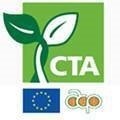The role of data in supporting digital agriculture entrepreneurship: Challenges and Opportunities for young innovators
03/03/2020

On behalf of Technical Centre for Agricultural and Rural Cooperation (CTA):
Data for agriculture is very important because the content of digital agricultural products/services and their ability to provide accurate actionable information and results largely depends on the ability to aggregate different sources of data. By having access to data about farmers, for example, will make visible the challenges they face and enable innovators to design targeted solutions. Having access to farmer data generated on-farm or off-farm can inform services to farmers that allow targeted production information, be it alerts on risks (weather and pests) or extension information such as crop husbandry.
The types of services that are potentially useful and impactful for farmers are represented in the diagram below. Different data sources are required for developing such services include (1) global/national e.g. satellite images, research studies, databases of information about crops, seeds, pests & diseases, subsidies etc. (2) Farmer-level e.g. credit records, land/field ownership documentation, etc. and 3) Field-based information e.g. soil information, geographic location, state of the fields, crops etc. to determine the content (e.g. appropriate information to take decisions.
Today’s youth have a strong role to play in enormously and sustainably increasing agricultural output to address existing global food security challenges. What they need is access to relevant and timely data in order to inform and design better digital solutions well aligned to the problems that farmers and other value chain actors face.
Source: CTA’s Data4Ag programme
Resources
a) Data for Agriculture - A lesson on the value of data in agriculture to support farmers, increase their income and develop food production - http://bit.ly/3ahhNeD Taken from the Farm Data Management, Sharing and Services for Agriculture Development Course
b) What is open data? – A lesson on open data and its principles http://bit.ly/3cpVpS0 Taken from the GODAN Action Open Data Management in Agriculture and Nutrition Course
c) Open data benefits for agriculture and nutrition - http://bit.ly/3ao8Jo7
d) 5 Ways Agriculture Could Use Open Data to Change the World - http://bit.ly/2TARtpg
Examples of Open Data use:
GODAN Documentaries:
e) OPEN FARMS - A documentary video that shows how modern technology and open data are transforming farms. http://bit.ly/2Td9EC8
f) OPEN WATER – A documentary video of how data is being used to support small-scale fisheries to provide sustainable food security. Abalobi Fisher is an app that is free to download and provides valuable information about the weather and climate from open sources, plus records data about fisher practice and catch information. http://bit.ly/2IbQZjS
This is all part of CTA’s 4-week Digital Entrepreneurship e-discussion: “The role of data in supporting digital agriculture entrepreneurship: Challenges and Opportunities for young innovators,” which started on March 1. For more information or to join the discussion visit https://dgroups.io/g/agrihack.
